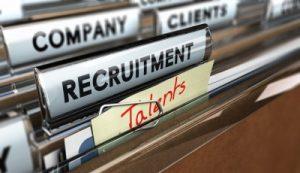- What is a Recruitment company?
- How recruitment companies work >
- Benefits of using a recruitment company >
- About Labour hire firms >
- The benefits of labour hire to businesses >
- What is the best option for your business?
- Aspects of a great recruiter >
At first glance, a labour hire Perth firm and labour hire recruitment company might look quite similar in what they do, but examine their roles more closely, and significant differences will emerge. They might be in the same line of business – that of providing labour to businesses – but the way they go about it is fundamentally different.
While both companies are experienced recruiters that aim to simplify the often long, odious and expensive process of hiring new workers, understanding how each operates is crucial to ensuring that you chose the right one for your staffing needs.
To help you differentiate between a labour hire and recruitment firm, we shall be looking at each comprehensively to understand how each works, how each can benefit your business, and the best to suit your specific labour needs.
Recruitment company – what is it?
A recruitment company is a matchmaker connecting individuals looking for gainful employment with organisations looking for workers. They basically take over all the manual work of HR ensuring that candidates provided have the necessary skills, qualifications and experience needed to fill the role and meet the business’ needs.
Once accepted by the client company, the candidate provided by the recruitment company becomes a full employee of the client company which is responsible for paying wages, entitlements and managing them henceforth.
How recruitment companies work
Although every entity has their own way of doing things, recruitment companies generally follow the same pattern.
- The client (after identifying a vacancy) sends out a detailed job description for the vacant position to the recruitment firm.
- The agency will then sift through their CV database and identify individuals that best meet the client’s criteria and draw up a shortlist. If the skill sets are not available from their database, they’ll advertise and evaluate candidates for that particular position.
- The client is then handed the best matching CVs for a final selection after which the agency will arrange and coordinate the final interviews.
The selected candidate is inducted into the client’s company as a “direct” employee on the company’s payroll. A finder’s fee is paid to the recruiting agency, and their relationship with the candidate ends there.
Benefits of using a recruitment company
Businesses gain several benefits from using a recruitment agency for their labour requirements.
- It saves both time and money. The process of hiring a new employee is not only long but expensive too. When you employ the services of a recruitment firm, you are basically farming out the recruitment function and utilising the recruitment firm’s database to get the best worker to fill a vacancy.
- Large skill pools. Labour recruitment companies maintain large databases of workers with different kinds of skills. This enables them to recruit for virtually any position within a short time.
- Convenience. A recruitment company takes all the hassle out of recruitment, all you need to do is provide the job description of the worker you require through email or phone call, and they will do the rest of the work.
- Market knowledge. Recruitment firms are vastly knowledgeable in the labour market for the industries they recruit for. This enables them to get the best workers for you even for those niche skillsets.
- Robust recruitment processes. Recruitment companies have specialised recruitment processes that ensure they only provide the best labour for your business.
Labour hire firms – about them
 Labour hire firms are similar to recruitment companies in that they link up ready and willing workers with companies seeking labour. That’s about where the similarities end. Unlike recruitment agencies that completely hand over the worker after the recruitment process, labour hire firms provide workers on a ‘labour hire’ arrangement.
Labour hire firms are similar to recruitment companies in that they link up ready and willing workers with companies seeking labour. That’s about where the similarities end. Unlike recruitment agencies that completely hand over the worker after the recruitment process, labour hire firms provide workers on a ‘labour hire’ arrangement.
What this means is that the workers provided to the client company either for short term or long term positions are not employees of the client. The workers are hired out to them. Thus worker wages and entitlements including insurance covers fall into the realm of the labour hire firm. They are the ones that maintain the employee’s payroll.
When stationed at the client’s organisation, the employee will work just like regular employees, wear the company uniform if required, and will use the company’s tools and resources. The direct employer-employee relationship will, however, remain under the labour hire firm’s domain.
The benefits of labour hire to businesses
Businesses stand to gain numerous benefits from labour hire, these include:
- Reduced costs. Like recruitment companies, labour hire companies take care of the entire recruitment process including advertising the positions, evaluating CVs, screening candidates, providing preliminary training and onboarding. In addition to this, labour hire firms provide payroll maintenance for their employees freeing you from doing it.
- Reduced downtime. Unlike recruitment companies, candidates provided by labour hire firms are not suggestions to be considered but workers who have been vetted, trained, and deemed capable of taking on the role. This makes them ideal for emergency cover as they can come in and start working immediately reducing the impact of employee absences. Whether an employee misses work as a result of illness, maternity leave or annual leave, labour hire makes sure you get a worker to take over their duties in a short time.
- Experience and expertise. A labour hire arrangement enables you to bring in the specialised skills and experience you require for a certain project on hire basis without having to take on the employee full time. This means that you’ll not need to train your employees on a skill that will only be required once the project is complete.
- Flexibility. For a lot of businesses, production requirements keep changing seasonally. Labour hire enables you to adjust your labour force to suit the current workload. You, therefore, don’t need to hire permanent staff that won’t be needed once the peak season or project is complete.
- Trying workers before hiring. For your permanent staff requirements, you can use labour hire to find out a worker’s compatibility with your company before you hire them. On-job evaluation is the best way to find out whether an employee will be a good fit.
- Short notice and emergency cover. Sometimes worker shortages cannot be foreseen such as when an employee falls ill or gets injured. Because labour hire firms have vetted candidates ready and willing to start work with little notice, you can get a temp to cover your labour shortfall minimising interruptions.
- Robust recruitment processes. Labour hire firms are experienced in recruiting labour and have developed processes to ensure that candidates provided to your company are the best for your needs.
- Bulk recruitment. Because labour hire firms have large databases of pre-screened workers, they are able to fill a large number of positions simultaneously without compromising the quality of labour provided.
- Network. A labour hire firm will have a larger network for finding workers than any employer could have. They maintain relationships with workers they have identified to be reliable and dependable and can fill a vacancy in a matter of days – sometimes hours. The broad network enables them to fill any vacant position you have very quickly.
- Market knowledge. Labour hire firms have an in-depth understanding of the labour market for all industries they recruit for. They have knowledge of available talent, their location and how to get them. They understand current hiring complexities, current salaries and available skill-sets and will provide viable alternatives for hard to acquire skills. Their knowledge enables you to get the right person to fill a position regardless of the prevailing market conditions.
What is the best option for your business?
The kind of firm you choose for your business greatly depends on your needs. If you need a one-off hire for a permanent employee, a recruitment company would be a good fit.
If your company has varying and short-term labour needs, however, a labour hire firm would be the better option for you as it would greatly reduce recruitment costs and time. Businesses that use labour hire firms can tap into vast pools of highly trained workers at any time to cater for emerging labour needs without the time-consuming constraints of recruitment and training – or the expense of hiring permanent workers.
Whichever solution you choose, make sure that the recruitment or labour hire firm covers the following aspects to ensure that you get quality services.
- Specific industry expertise. Unless your recruitment needs are very general, make sure the recruitment firm you choose has the capability to recruit for your specific industry. Otherwise they will struggle to provide the best labour for you.
- Wide recruitment. A good worker is hard to find. The recruitment company you choose should, therefore, have several recruitment strategies to ensure that they get the best worker for you.
- Robust screening processes. Screening is important to ensure that your business gets the employee they need. A good recruitment firm should have processes in place to ensure that all candidates brought forward will match your needs.
- Registration and compliance. The labour agency you select should be registered with the relevant government authority and should be in compliance with all labour laws and ethics. This will help protect your businesses reputation.
- Guarantees. If a labour hire provides guarantees for their services, it shows they are confident in their systems, and you can hold them accountable if they fail to provide what you are looking for.
- High employee retention. An agency may boast of their ability to fill 100% of client vacancies, but only a few of their candidates make it through a year of employment. Ask your agency to provide hard numbers for the retention of the candidates they provide.
- After sales services. An agencies job does not end once they have provided the worker. They need to check in regularly for at least 6 months to ascertain the candidate is progressing well and help out with any emerging issues.
- Reliability. A good agency should be able to deliver on time as delays could be very costly in terms of productivity. Ask for recommendations before settling on a recruiter.
- Relationship building. For a firm to recruit efficiently for your business, they need to build a relationship with you to understand your company culture and the kind of candidates that would fit well into the organisation.
- Communication. Good two-way communication needs to be maintained to ensure that each party plays their role in the recruitment process. Without proper communication, the recruitment process would be greatly flawed.
Next time you are looking to hire staff either on short-term or long-term basis, remember that a recruitment company is not the only labour provision solution available; evaluate your needs carefully to find the solution that will work best for your business.






